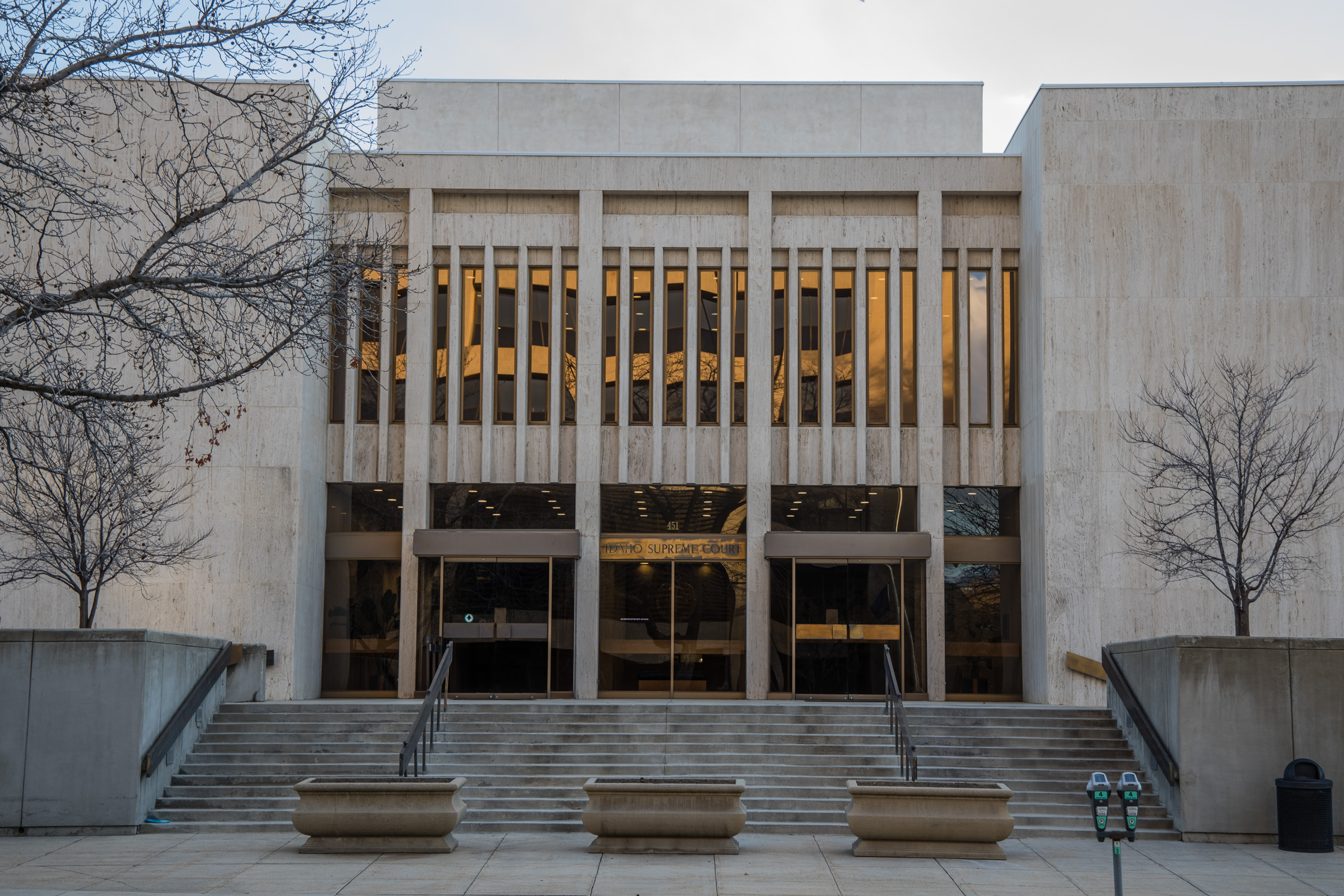[ad_1]
Three of Idaho’s health care licensing boards have asked the Idaho Supreme Court not to delay the implementation of Idaho’s abortion ban while a lawsuit against the ban makes its way through the court.
Hearings are scheduled for Aug. 3 in two different lawsuits over Idaho abortion laws. In both cases, Planned Parenthood Great Northwest and one of its Idaho abortion providers, Dr. Caitlin Gustafson, sued the state and various people and entities involved in the implementation of the law.
Planned Parenthood named the Idaho Board of Medicine, Idaho Board of Nursing and Idaho Board of Pharmacy in its most recent lawsuit — over Idaho’s “trigger law” that criminalizes abortion services — because those boards can suspend and revoke health care practitioners’ licenses once the ban takes effect.
The boards oversee the education, training and licensure of most of Idaho’s primary care providers, including those who provide abortion care or have patients who may seek abortions. The boards don’t represent doctors, nurses or pharmacists in the way that a trade association does — like advocating for their members before the Idaho Legislature.
But their mission puts them in a unique position when it comes to the abortion law. The boards are charged with ensuring the professionals they license are providing safe and quality health care to patients. They also, imminently, will be responsible for ensuring those professionals do not provide abortions under a law that some health care providers argue is too vague.
”Idaho’s trigger law lacks clarity and puts patients at risk. The IAFP is concerned about any rush to implement the law, especially since it lacks clarity in important aspects of delivering reproductive health care.”
– Liz Woodruff, executive director of Idaho Academy of Family Physicians
The Idaho Board of Medicine, Idaho Board of Nursing and Idaho Board of Pharmacy last week asked the Idaho Supreme Court to deny Planned Parenthood’s request to put the law on hold in a June 29 filing written by Idaho Deputy Attorney General Dayton P. Reed while the lawsuits are going through the court process.
“There are no proceedings to arrest: no court or board has ever applied (the law),” wrote Reed, representing the state and the boards. “And the (request to delay implementation) seeks to arrest the proceedings of third parties who are not respondents in this case: all Idaho Courts and law enforcement officers.”
The Idaho Capital Sun asked the Idaho Attorney General’s Office and the Division of Occupational and Professional Licenses whether the boards’ members or executive director were consulted before the state made its latest filing in the case.
“We won’t have comment on that aspect,” said Scott Graf, public information officer for the AG’s office.
“I can’t comment on any pending litigation,” said Bob McLaughlin, public information officer for the Division of Occupational and Professional Licenses, the umbrella agency that now includes all of Idaho’s licensing boards.
Although the boards have their own attorneys, they also are state entities. So, they can be represented by the Idaho attorney general.
“The Board of Medicine, Board of Pharmacy, and Board of Nursing are being represented by the Idaho Office of Attorney General,” McLaughlin said. “The state’s position will be set forth in pleadings filed (to) the court.”
Idaho’s abortion ‘trigger law’ passed in 2020
Idaho’s “trigger law” was passed by the Idaho Legislature and signed by Gov. Brad Little in 2020. It makes abortion services a felony crime and takes effect 30 days after the U.S. Supreme Court has officially overturned the constitutional right to abortion under Roe v. Wade.
That could mean that, unless the Idaho Supreme Court had ruled on the Planned Parenthood lawsuit by mid-August, abortion providers could be subject to discipline for their work.
Anyone who performs or attempts to perform an abortion can be convicted of a felony with a sentence of two to five years in prison.
”The remedy sought by petitioners should be sought in the legislature or the ballot box.”
– Dayton P. Reed, Idaho deputy attorney general, in a legal filing in the Idaho Supreme Court case over Idaho’s abortion trigger law
If they are prosecuted, an abortion provider can defend themselves by showing the abortion met certain criteria:
- to “prevent the death of the pregnant woman”
- was performed in a way that “provided the best opportunity for the unborn child to survive”
- if the pregnant woman, or the girl’s parent or guardian, reports an “act of rape or incest to a law enforcement agency” and gives the doctor a copy of the police report
However, the health care provider would be required to prove in court that the abortion was, more likely than not, allowed under those exceptions.
There also is no exception when a patient seeking an abortion threatens to harm or kill themselves if they cannot terminate the pregnancy.
Doctors and other health care providers who violate the law — performing, attempting or assisting an abortion — also face professional discipline. Their licenses would be suspended for at least six months on the first violation, and would be permanently revoked if they violate the law again.
For at least the past decade, it has been very rare for the Idaho Board of Medicine, Idaho Board of Nursing or the Idaho Board of Pharmacy to revoke a license permanently.
How will Idaho’s abortion law apply in real-life circumstances?
Idaho’s health care providers are still trying to figure out how the law will apply in real-life situations.
Abortions can be provided, in theory, by any doctor who is trained in abortion care. Not all doctors do perform abortions through medicine or surgery, though.
But the law may affect the practice of many family doctors, obstetricians and gynecologists — whose patients have, for decades, been able to choose whether to end a pregnancy, either because it is unplanned or for medical or other reasons.
Dr. Loren Colson is a family medicine doctor who provides his patients pregnancy counseling which includes abortion as an option.
“The question for us becomes: When is it considered necessary to prevent the death of the pregnant woman?” Colson said. “Is it when there’s a complication they could die from? Or (is it when abortion would) prevent a complication they could die from?”
Patients can have complications that he says are unclear in the law: ectopic pregnancies, fatal chromosomal abnormalities, women with a high risk of life-threatening conditions like pre-eclampsia, or situations when water breaks prematurely — putting both patients at risk of infection or sepsis, and requiring the mother to either deliver a fetus that can’t survive outside the womb or try to stall delivery and hope antibiotics can stall infection.
There are cases when water breaks prematurely, and the patient must either deliver or try to hold off delivery and hope that antibiotics prevent infection or sepsis.
The Idaho Academy of Family Physicians “is very concerned” about how the law will affect doctors and their ability to care for patients.
“Idaho’s trigger law is so vague as to result in a series of gray areas in the delivery of care to pregnant patients,” said Liz Woodruff, executive director of the Idaho Academy of Family Physicians.
It will likely lead to confusion about how to treat conditions such as:
- miscarriages in which the fetus dies but doesn’t leave the uterus;
- lethal conditions in a developing fetus, such as when a vital organ like the brain never develops;
- and ectopic pregnancies, which are non-viable and dangerous because the fertilized egg is lodged in a fallopian tube.
In a statement June 24, the academy said it “strongly opposes any external interference in (the health care) process as it conflicts with the fundamental medical principle of patient autonomy and infringes upon the patient-physician relationship.” The policy also would “criminalize the patient-physician relationship and inhibit the delivery of safe and timely comprehensive care,” it said.
The law “will complicate the delivery of timely medical care, putting physicians in precarious legal situations and therefore putting patients at risk,” Woodruff said.
About the health care boards
The boards of medicine, nursing and pharmacy have authority over most of Idaho’s health care professionals. That includes doctors, physician assistants, nurse practitioners, nurses, pharmacists and others who care for Idaho patients.
The boards do not have authority over certain other professions, such as midwives who don’t have a nursing license.
The boards are composed mostly of people licensed in each profession, and a small number of members who represent the public or other stakeholders.
[ad_2]
Source link


